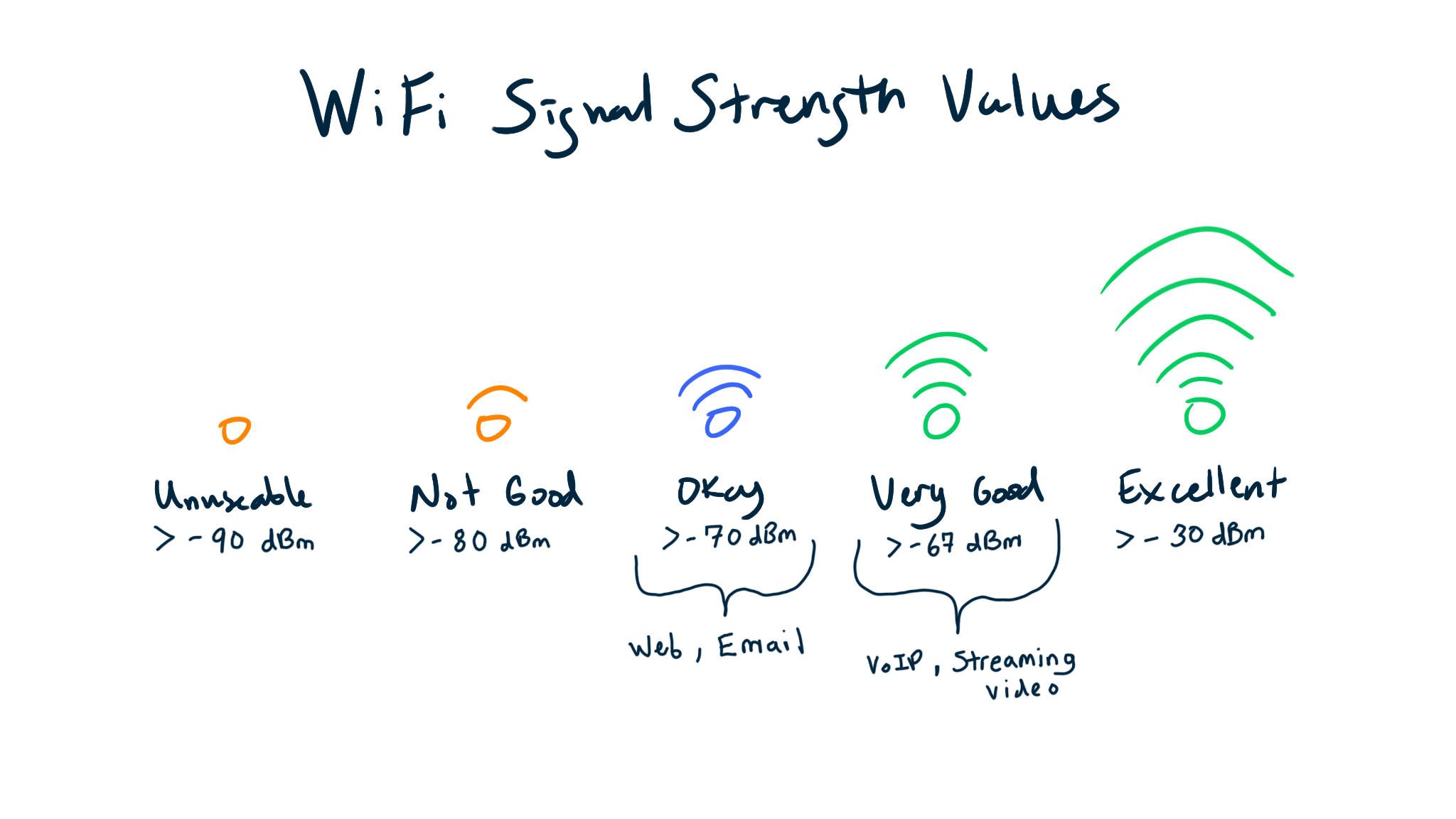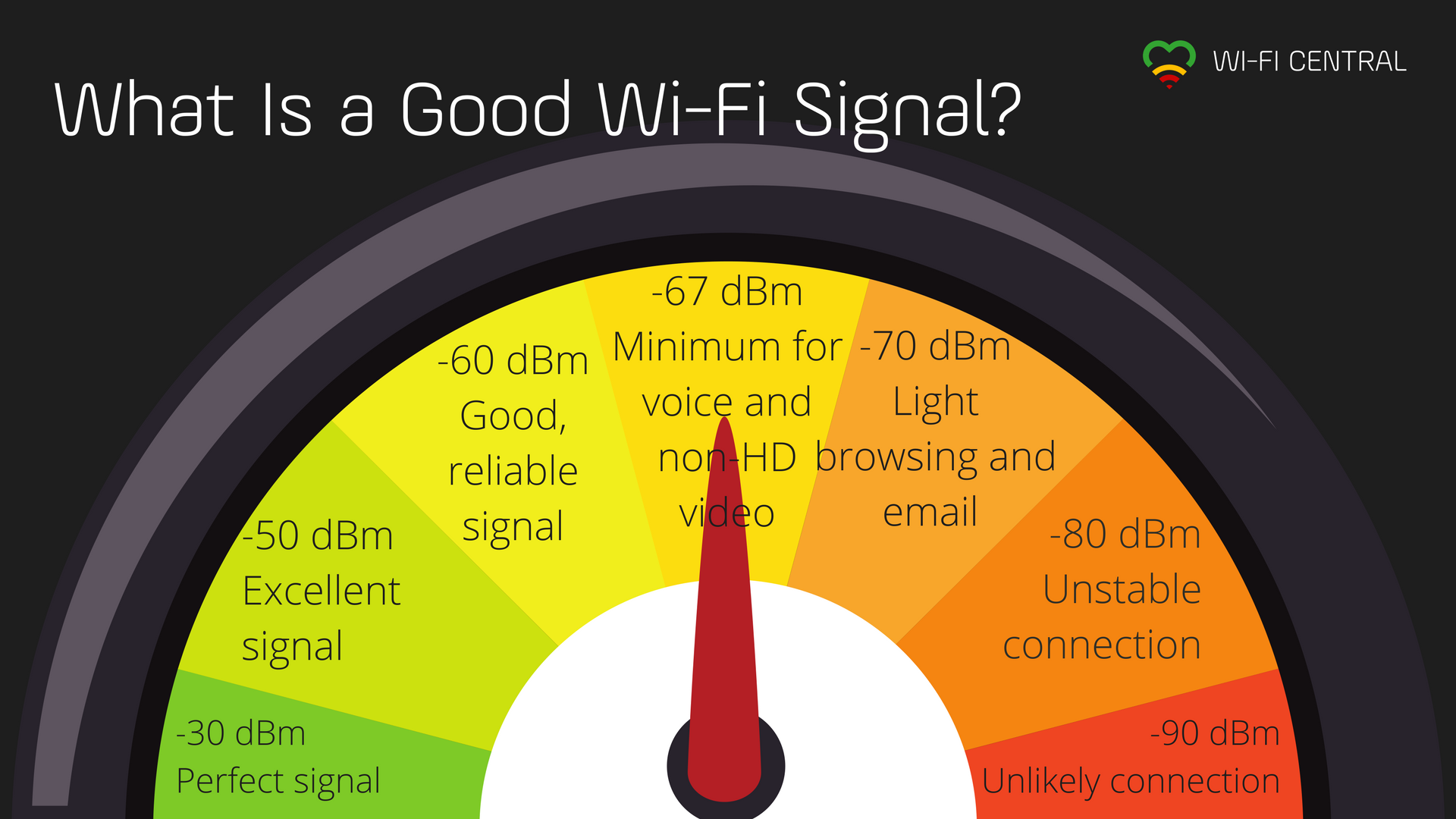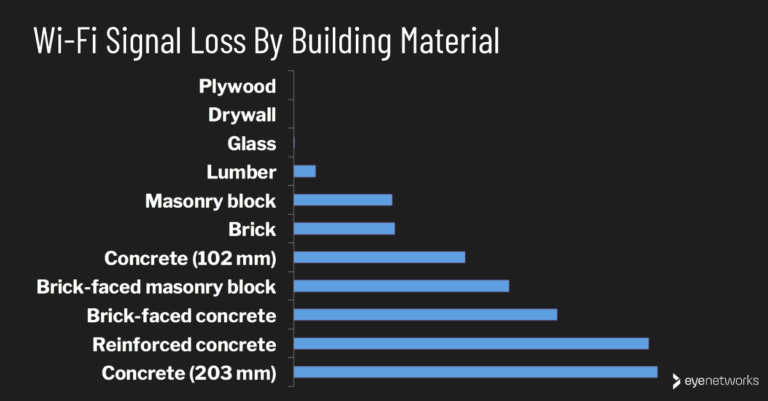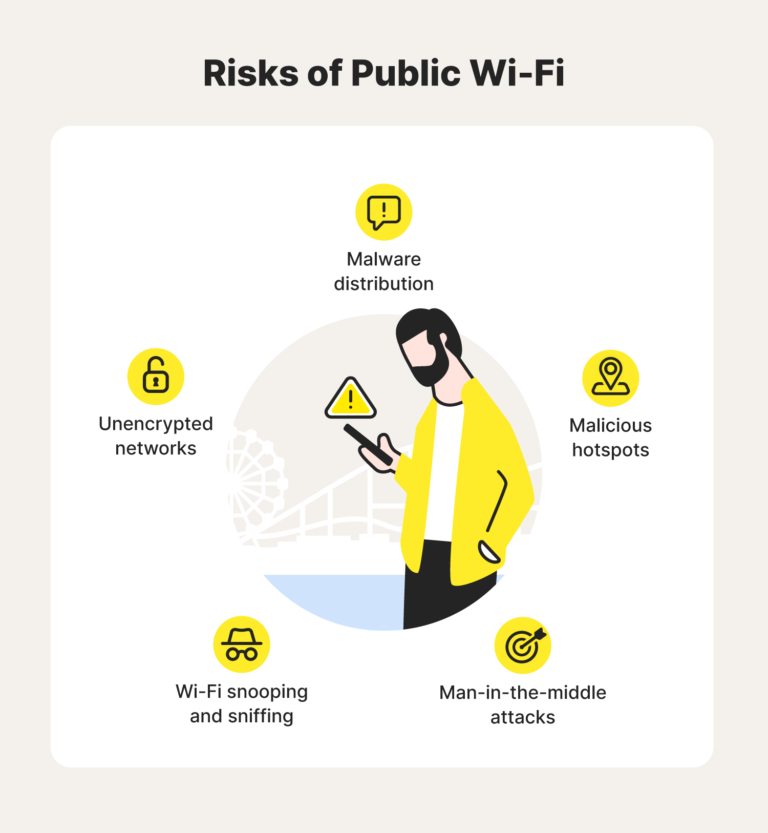What Is A Good Wi-Fi Signal Strength?
A good Wi-Fi signal strength is essential for an optimal wireless network connection. This is because it affects the speed and reliability of the connection between a device and the router. A good signal strength is measured in decibels (dB) and is typically between -67 to -30 dB. Signal strength is affected by various factors such as distance from the router, number of walls and other obstructions, and type of router. To get the best signal strength, it is important to place the router in a central location, reduce the number of walls between the router and devices, and use a router with high-quality antennas.
What Is Wi-Fi Signal Strength?
Wi-Fi signal strength is a measurement of the power of the wireless signal transmitted from a router or access point. It can be used to measure the quality of a connection, identify potential interference, or determine the best location to place a router for optimal coverage. Signal strength is usually measured in dBm (decibels relative to a milliwatt) and can range from negative values (weakest) to positive values (strongest). A good Wi-Fi signal strength should generally be -67 dBm or better.
When considering how to measure signal strength, it is important to take into account the distance from the router and the number of walls or other obstacles that the signal must travel through. The farther away the device is from the router, the weaker the signal will be. Additionally, materials such as drywall, metal, and concrete will reduce the signal strength. It is also important to consider the number of other Wi-Fi networks in the area as this can contribute to interference.
To get the best Wi-Fi signal strength, consider repositioning the router or access point to a more central location, or using range extenders to expand the coverage area. Additionally, choosing a router or access point with dual band capabilities can help to reduce interference and improve signal strength. By understanding Wi-Fi signal strength and how to measure it, you can ensure optimal coverage in your home or office.
How to Measure Wi-Fi Signal Strength
?
Wi-Fi signal strength is an important factor that can affect your online experience. A strong Wi-Fi connection is essential for streaming, gaming, and even basic web browsing. But how do you measure your Wi-Fi signal strength? This article will discuss the basics of measuring Wi-Fi signal strength and provide tips on how to improve your connection.
Measuring your Wi-Fi signal strength is easy. Most modern devices come with a “signal strength” indicator that will tell you how strong your connection is. You can also use third-party apps or download a Wi-Fi scanner to measure the signal strength. These tools will show you the signal strength in terms of dBm, which stands for decibel-milliwatts. A higher dBm means a stronger signal, and a lower dBm indicates a weaker signal.
Another way to measure Wi-Fi signal strength is to use a Wi-Fi signal booster. This device amplifies the signal by boosting the signal strength. You can also use directional antennas to focus the signal in a specific direction. Additionally, you can use a Wi-Fi extender to increase the range of your connection.
By understanding your Wi-Fi signal strength and following the tips mentioned above, you can ensure that you always have a strong and reliable connection. This will ensure that you have an optimal online experience.
Factors Affecting Wi-Fi Signal Strength
Wi-Fi signal strength plays a crucial role in having a reliable connection. Factors that affect Wi-Fi signal strength include the distance from the router, the number of walls or obstacles, noise from other devices, and interference from other wireless networks.
Distance is an important factor since the further away you are from the router, the weaker the signal strength will be. The number of walls or obstacles between the router and the device can also weaken the signal strength. If there are multiple walls or obstacles, the signal strength will be weakened significantly.
The presence of other devices can interfere with the signal strength, especially if they are using the same frequency. Additionally, other wireless networks nearby can cause interference, as they can compete for the same frequency as your own network.
To ensure a good Wi-Fi signal strength, it’s important to minimize the distance from the router, reduce obstacles between the router and the device, and limit the number of other devices that are using the same frequency. Additionally, you should try to keep other wireless networks away from your own router. By following these tips, you can ensure that your Wi-Fi signal strength is as strong as possible.

What Is a Good Wi-Fi Signal Strength?
Having a good Wi-Fi signal strength is essential for any home or business. A strong signal will mean that you can access the internet from anywhere in your home or office, with minimal disruption. But what is a good Wi-Fi signal strength?
The strength of a Wi-Fi signal is measured in decibels (dBm), which is a logarithmic unit of measurement. The higher the decibel number, the stronger the signal. Generally, a good Wi-Fi signal strength should be at least -67 dBm or higher in order for your device to connect to the internet. A signal strength of -67 dBm or higher is considered to be an optimal signal strength for streaming video, downloading files, and online gaming.
In addition to signal strength, the quality of the signal is also important. A good signal should be free of interference from other devices, such as microwaves, cordless phones, and other Wi-Fi networks. Additionally, the distance between your device and the router can also play a factor in how strong the signal is. Keeping your router close to your device, or using a signal amplifier, can help to improve the signal quality.
Ultimately, having a good Wi-Fi signal strength is essential for reliable internet access. It is important to ensure that your router is positioned properly and that there are no interference or distance issues that can cause the signal to be weaker. By monitoring your signal strength, you can ensure that you are getting the best Wi-Fi connection possible.
How to Improve Wi-Fi Signal Strength
Having a strong Wi-Fi signal is essential for a reliable internet connection. Whether you’re streaming movies, playing online games, or working from home, a weak signal can cause lag and reduce performance. To make sure that your connection is reliable, it’s important to understand the basics of Wi-Fi signal strength and know what to do to improve it.
The first thing to understand is what a good signal strength is. Wi-Fi signal strength is measured in decibels, with 0 dBm being the strongest signal and -100 dBm being the weakest. Depending on your needs, the ideal signal strength can vary. For streaming, a signal strength of -50 dBm or higher is recommended. For gaming, a signal strength of -60 dBm or higher is ideal.
If your signal strength is lower than what is recommended, there are a few things you can do to improve it. The most important of these is to make sure your router is in the best possible location. This means that it should be in an open, central area where it is not blocked by walls or furniture. You should also be sure to keep your router away from other appliances that might interfere with the signal, such as microwaves, refrigerators, and cordless phones.
You should also consider investing in a wireless range extender or a mesh system. These devices are designed to help extend the range of your router, allowing you to get a stronger signal in more areas of your home. Additionally, you may want to consider upgrading your router to one with a higher signal strength.
By understanding what a good Wi-Fi signal strength is and taking steps to improve it, you can ensure that your connection is reliable and your internet activities are optimized.
Summary
Having a strong Wi-Fi signal is essential for any home or office network. A strong signal means that your devices are able to communicate with the router without any interruption, allowing for a fast and reliable connection. But what is a good signal strength? In this article, we will discuss what a good Wi-Fi signal strength looks like, and how to measure it. We will also discuss the different factors that can affect signal strength, and the best practices for optimizing your Wi-Fi network. By understanding these concepts, you can ensure that you always have a strong signal for your network.
FAQs About the What Is A Good Wi-Fi Signal Strength?
1. How can I check my Wi-Fi signal strength?
Answer: You can check your Wi-Fi signal strength by looking at the signal strength indicator on your device, or by using a Wi-Fi signal strength meter.
2. What is a good Wi-Fi signal strength?
Answer: A good Wi-Fi signal strength is considered to be around -50 dBm or higher.
3. What can I do to improve my Wi-Fi signal strength?
Answer: You can improve your Wi-Fi signal strength by moving your router to an open area, away from walls and other obstructions, or by upgrading your router’s antennas. Additionally, you can try using a Wi-Fi range extender or mesh network system to enhance your coverage.
Conclusion
A good Wi-Fi signal strength is essential for reliable internet connection. It is important to ensure that your router is placed in an optimal spot and that your network is properly configured to ensure that you receive the best signal strength possible. With the right settings and placement, you can enjoy a strong, reliable Wi-Fi connection that is perfect for streaming, gaming, and other online activities.




